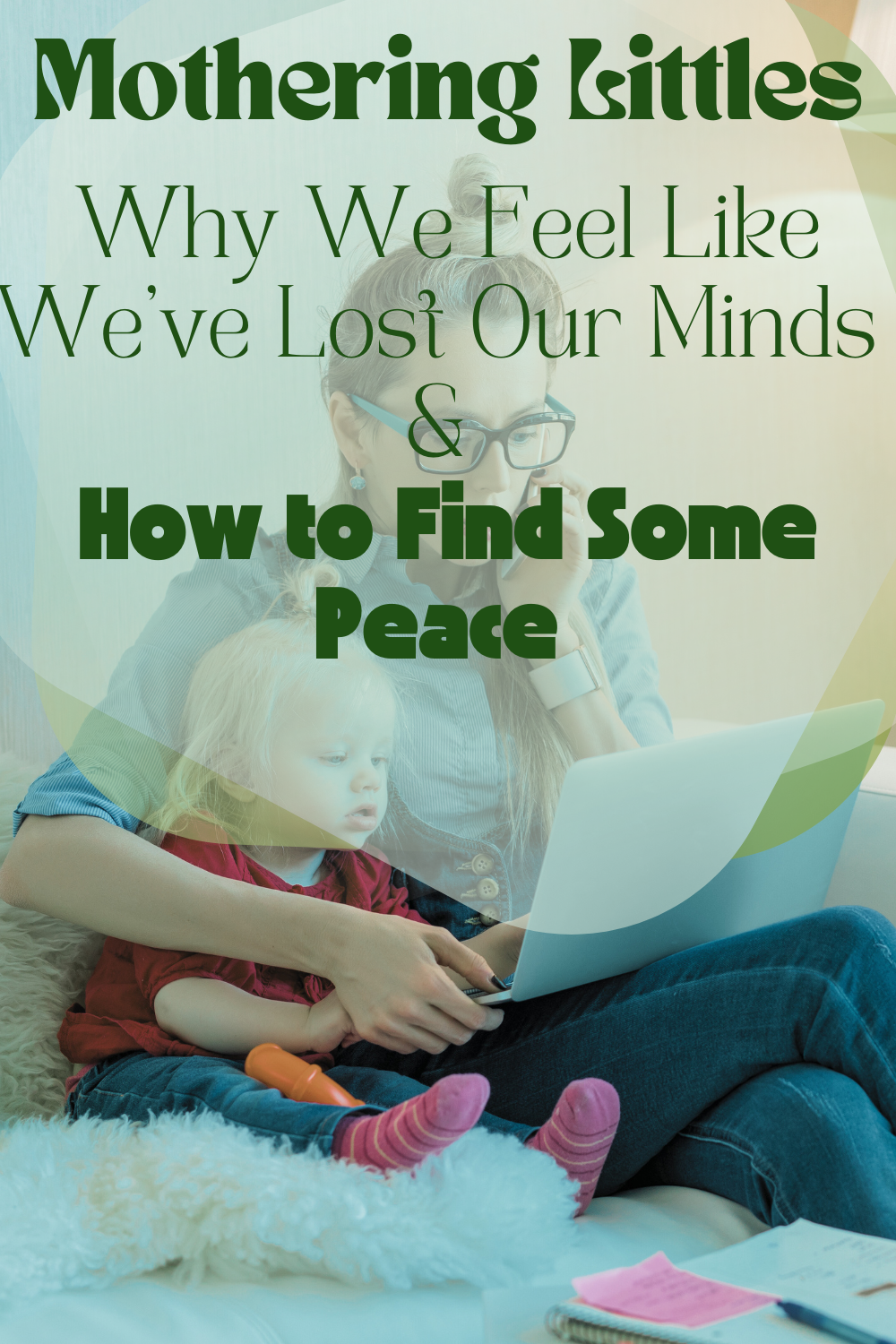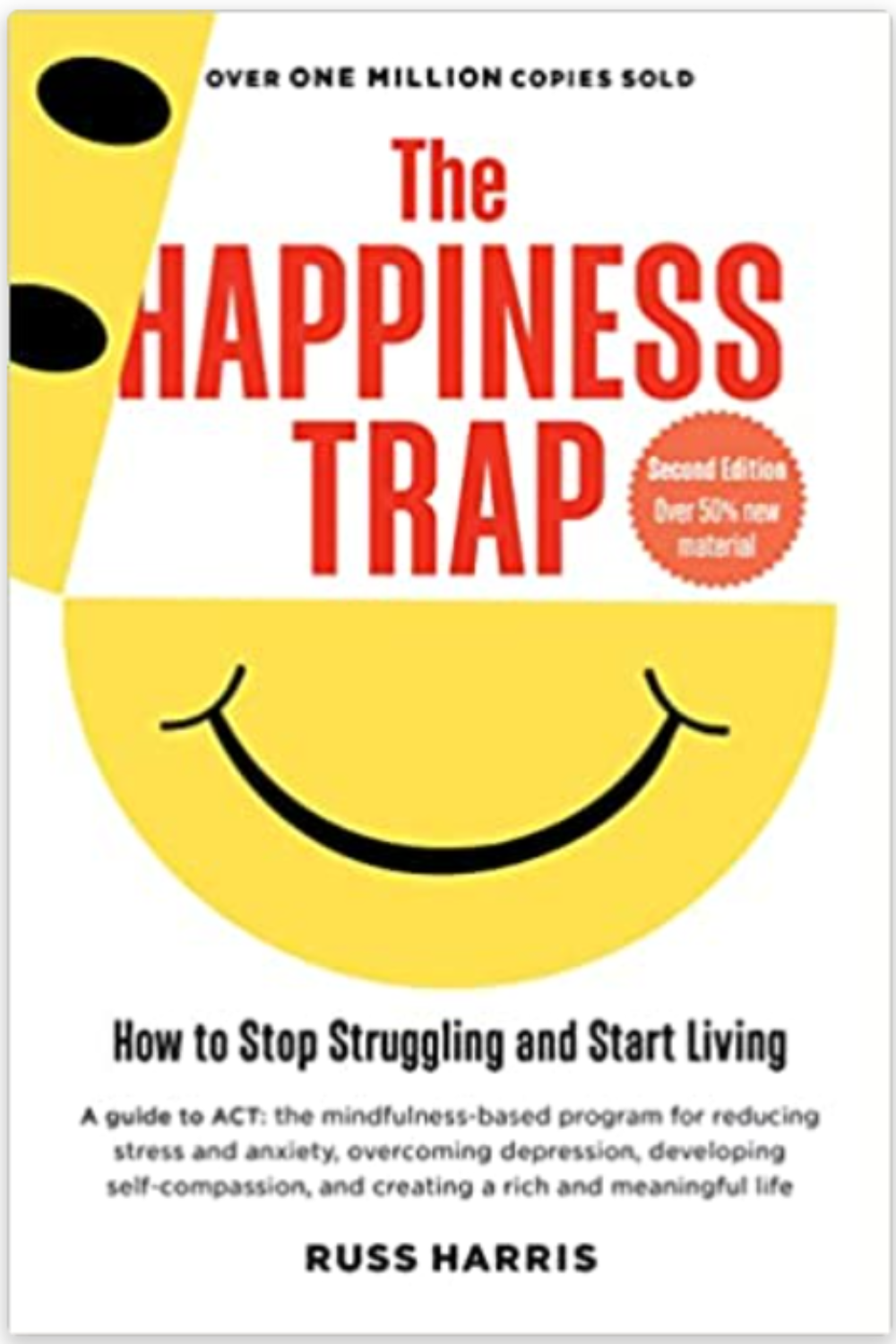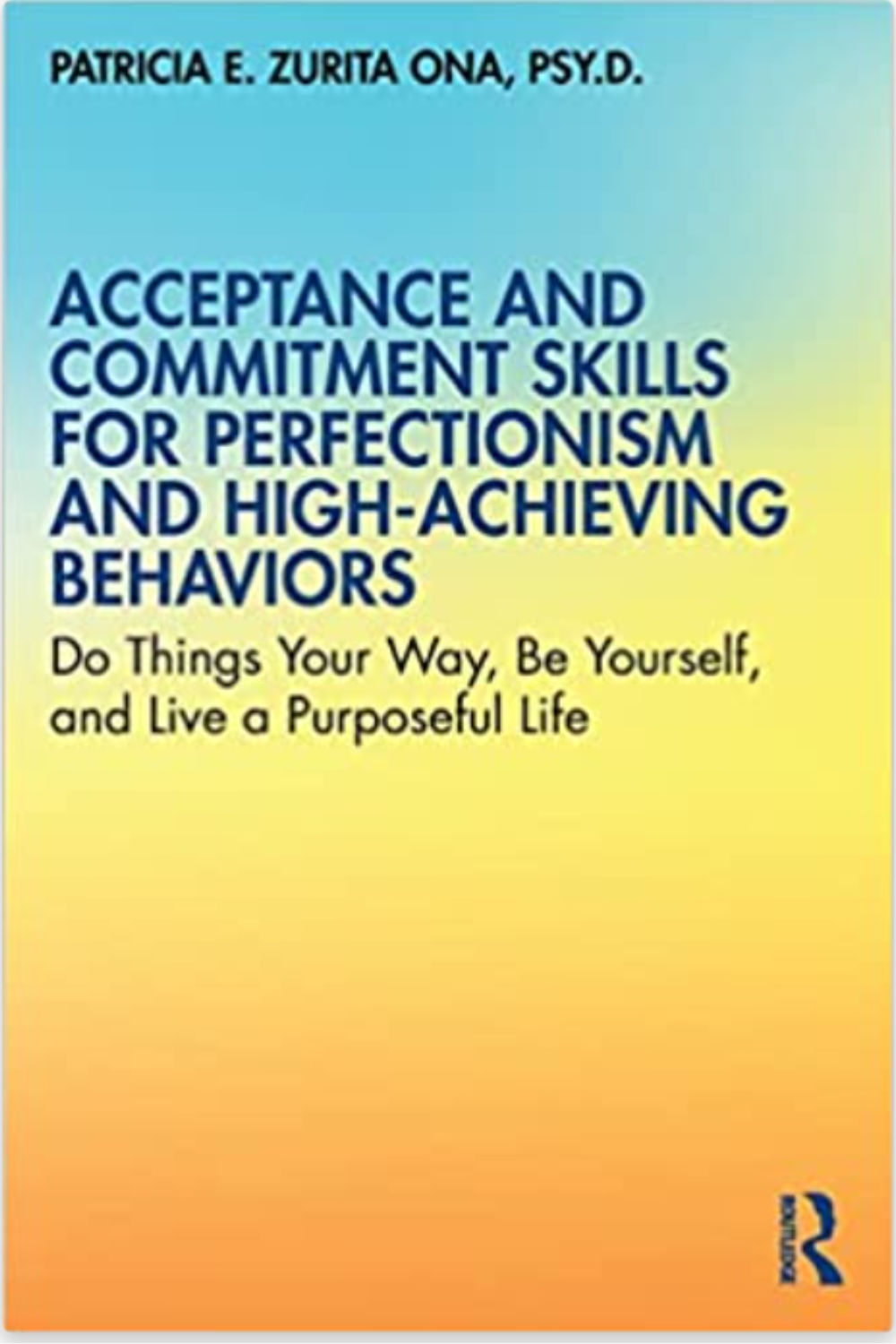Sharing is caring!
ACceptance & Commitment Therapy + Motherhood
As some of you may know by now, I’m a mother of two littles. I was in the 2 under 2 club…which remains difficult even as they age! Before I learned about Acceptance & Commitment Therapy, I was fighting the struggles that come with being a stay-at-home-mom and engaging in escape behaviors (drinking wine) which only made my struggles worse. In this post, I’m going to explain to you why Acceptance & Commitment Therapy (ACT) can lead you to be a more at peace mother and how to apply ACT so that you can accomplish that peace!
This post may contain affiliate links to products I’ve tried and love. Please go to my terms and conditions page for more information.
My Motherhood Story
Dear reader, I want to share my story so that you know that I actually practice what I’m about to teach. If I hadn’t found acceptance and commitment therapy (ACT) I wouldn’t have been able to decrease my alcohol intake, which I was doing to escape the unpleasant emotions that come with motherhood, and learn to sit calmly through the rollercoaster that is being a mother.
I Left My Job...
I left my job in early 2019 as a board-certified behavior analyst (BCBA) that trained parents and caregivers on how to implement behavior interventions and teaching methods in the home so that their children (sometimes adult children) could live a more quality life. I was ready to leave my very challenging job to raise my baby at home.
Little did I know that while it’s very rewarding to be with my littles while they are so little it is also the most challenging mental and physical journey of my life! But those journeys are the best, aren’t they?
Had My Little Girl...
My first little one was born 5 weeks early in 2019 and stayed in the NICU for two weeks. That was my introduction to motherhood. And by no means am I claiming this is the roughest intro to motherhood. However, to me, it was very tough and shocking emotionally. Two years later she began having “episodes” during which she would get sick with whatever symptom under the sun and then stay sick from 4-10 days with her fevers reaching 105 in the afternoons and then again at night almost all the way through her illness. She wouldn’t eat, she would sob out of nowhere just out of sheer tiredness and achiness. This lasted for a solid year and happened either once a month or every other month. She had what I found out is PFAPA (periodic fever, aphthous stomatitis pharyngitis adenitis). Sometimes removing tonsils and adenoids helps! So, one year later at age 3, we did that. The recovery was hellacious, but it helped spread the episodes apart at least. Anyways, rough first 2 years with my first little one.
Eighteen Months Later...
Eighteen months after my first was born I had my son. All was well with my little cherub until he started to have chronic ear infections. After so many ear infections and many months of crankiness, neediness, crying and melting down the pediatrician gave us the go ahead to get tubes in his ears. So fun! He is a STRONG-WILLED little guy, and some tantrums involve flopping to the floor, kicking and screaming and hitting me as I drag him away from a public place and to the safety of the car.
Motherhood is TOUGH
When Baby Arrives
Let’s try to really appreciate what a mother goes through while being a mother. If you carried your baby yourself, gave birth to that baby (and C-section counts) and then breastfed (or pumped milk) that baby, then your body went through the most challenging and drastic changes that a human body can go through in a very short amount of time! That is no little feat. JUST BECAUSE women have done it since the beginning of humans DOESN’T MEAN that it’s not short of a friggin’ miracle! Let’s not downplay becoming pregnant, growing a human, birthing the baby, and then feeding the baby just because it’s been done before.
The After Math
Let’s talk about AFTER the baby is born. Now you’re responsible for nourishing and nurturing a human being! Be it milk from your body OR formula it’s still a HUGE responsibility that I’m SURE you’ve never had to do before you had your first baby. This means getting up in the middle of the night, doing ALL OF THE things that involve feeding baby. Popping your boob out while half asleep, or warming up milk in the dark, cleaning pumping parts many times throughout the day. Not to mention, all kinds of things can happen during these several middle-of-the-night feedings. Spills, babies being extra cranky because they can’t burp, baby not falling back asleep, YOU not falling back asleep, poopy diapers, running out of wipes…on and on.
It Can All Feel Like Too Much
I hope I’m conveying how hard this can be on a woman. Not only are you losing sleep and responsible for nourishing a child you have extra laundry, entertaining the baby, taking care of EVERY part of their little bodies, more dishes, crying spells or tantrums to deal with, spit up or toddler “science experiments” (or messes), poop and pee. If you do have a partner, you also must learn how to parent together AND maintain a peaceful and supportive marriage. WOW! This is a lot and I’m not sure if we are giving ourselves enough credit. So, take a moment and do that right now.
If you want to read more about what we are physically and mentally going through as mothers to littles then head over to my post that shares scientific facts about mental and physical changes we go through and some solutions that can help ease your mothering journey.
How ACT Can help you as a Mother
Let’s move on to how learning about and implementing the framework of acceptance and commitment therapy (ACT from now on) can help you.
First! Here are some books that have really helped me to understand ACT better: The Happiness Trap by Russ Harris and Acceptance and Commitment Skills for Perfectionism and High Achieving Behaviors by Patricia E. Zurita Ona.
The six core principles of Acceptance & Commitment Therapy
Each principle feeds off another principle.
The six core principles are:
- Diffusion– Recognize thoughts for what they are. Just words. Let them come and go without struggling with them.
- Expansion– Make room for these unwanted thoughts. Accept them, allow them to come into your mind and then leave your mind. It’s all temporary.
- Connection– Be present in the moment. Be aware and mindful of your thoughts. Letting them run rampant without recognizing them can lead your actions astray. Think THEN act.
- The observing self– The observing self IS THE SELF that can be mindful and observe thoughts as they come and go. Step back and observe your thoughts like they’re traffic in your head. Don’t let them lead you to action. Don’t let them “hurt” you. Just observe.
- Values– Identify your values because those values are the LEADER of what behaviors you want to engage in. What do you value? Being a present mother? Eating healthy food? Self-Care?
- Committed Action– This last principle speaks to the previous principle. After identifying your values, you can identify behaviors that align with your values. You value being healthy? Then some behaviors might be buying vegetables, making every meal at home, stretching, or moving every hour instead of being sedentary.
An example scenario
So based off what I said and the topic of this post, let’s go through a little scenario.
You’re a mother that values how you treat your children and you value modeling the appropriate way to handle frustration and anger.
You’re also a mother that has had a very rough day with the kids. You’re frustrated, burnt out and have snapped at the little ones.
Now you feel ashamed and like you’re a bad mother and you want to escape that feeling so you either have a glass (or three) of wine or get stuck scrolling on your phone so you can escape those thoughts and feelings for just a flippin’ second.
Here’s how this scenario can be looked at through the lens of ACT:
- Diffuse: Don’t fuse with the thought that you’re a bad mother. Let that thought come and go. Don’t let it lead your actions or “hurt” you.
- Expansion: Allow your frustration, anger, and shame into your mind. Don’t struggle with them because struggling is only adding to your challenge. Just accept the emotions. They’re temporary. It’ll pass.
- Connection: Be present. When you’re feeling this frustration and anger recognize it. Observe your thoughts for what they are. Just thoughts.
- The observing self: While you’re present simply observe. Be a calm presence in your own mind watching the frustration, anger and unhelpful thoughts come and go.
- Values: Remember your values. You value treating your kiddos with respect and modeling how to handle anger and frustration.
- Committed Action: Next time you feel anger and frustration, simply remember your values, and let those values LEAD your behavior.
How I practice Acceptance & Commitment Therapy
This is all easier said than done! That’s why I want to give you an example of how I practice ACT in real life.
When I’m practicing ACT as a stay-at-home Mom it can look like this: My son has thrown a mega tantrum in a store and I had to abandon my cart, carry him out, shield myself from getting hit while I carry him like a sack of potatoes to the car, then had to strap him into the car seat as he continues to try to fight me.
Afterward, I breathe deeply to calm down. If thoughts of the “things I did wrong” come into my mind, I don’t fuse with them. I let them go. I tell myself I did the best I could in the situation. I try to be aware of how I’m feeling and step back and let it happen without struggling with it. Finally, since I value being communicative with my kiddos, I explain to my tots what happened, why I did what I did and how I’m feeling and what I’m trying to do about it.
Let ACT Guide You In your Motherhood Journey
I DO NOT do this perfectly! I do get snappy at my little ones and then I do feel ashamed and get to thinking bad things about myself. But ACT is like a beacon of light that I feel is always guiding me in the right direction. Because If I follow the principles of ACT then I know that I’m trying to live by what I value, I’m communicating with myself, I’m practicing mindfulness, I’m not fighting with inevitable human emotions, and I’m left feeling more relaxed even in the face of undesirable emotions. And THAT is why ACT is a beloved therapy of mine!
I hope this post exposes you to a way of thinking that can help you struggle less with all of the ups and downs of being a mother of littles.
Do you feel as though practicing the principles of ACT can help you? Which one do you feel like you can begin practicing today?
Feel free to leave some feedback, comments or requests on what posts you’d like to see next!
Until next time,
Kristi
Written by Kristi, June 15th, 2023
Sharing is caring!



